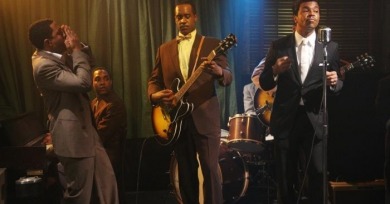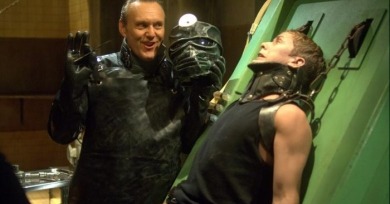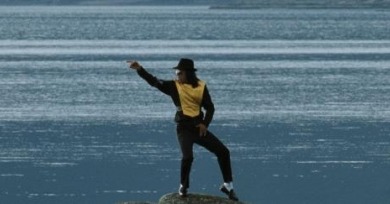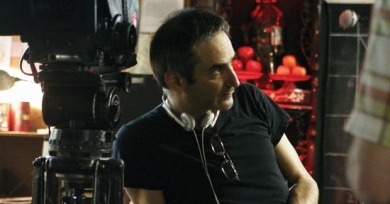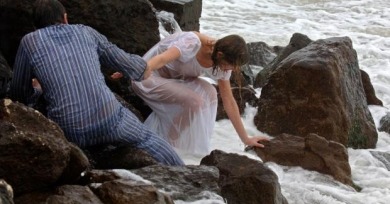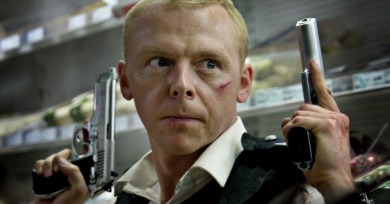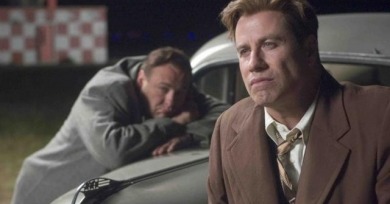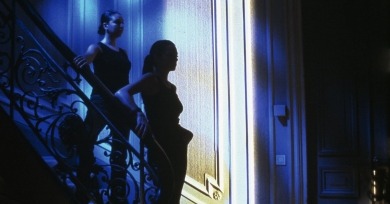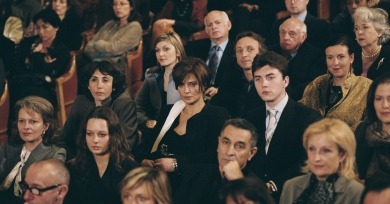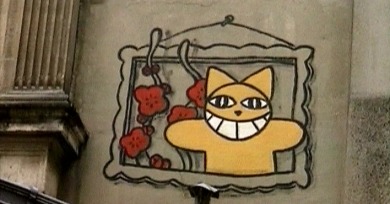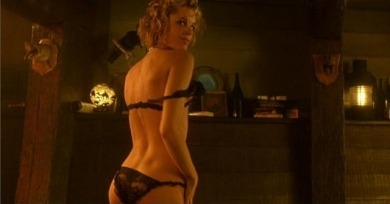Nick Pinkerton
Rock obscurantists can be worse sticklers than sci-fi fanboys, but it must be said that Cadillac Records doesn’t condescend to history even when jumbling facts—scenes are largely treated as interactions between feasible humans, not as excuses to broadcast racial parable.
A helpful shortcut for negotiating the heaps of texts in this modern world: all attempts to give something familiar or antique a self-consciously edgy, gritty makeover can be, de facto, written off as terrible.
Encounters at the End of the World is the latest missive from world cinema’s Marco Polo / Jack London / Great White Image Hunter, Herr Werner Herzog, out for a deserved large-screen airing before entering its inevitable Discovery Channel rotation.
In his motor-mouth heyday, Korine’s scope of reference was undeniable, even if that width came at sacrifice of depth. Nothing could pass through this great trivializer without being shrunken, anecdoted, and turned into tossed-off quirk or allusion in a contextual vacuum.
"Whatever is happening now in Asia, in India, what is going on in Russia…it’s those parts of the world that are catching up with modern history, creating this huge turmoil where anything can happen, which defines the world we live in."
The director’s produced an entire film out of loose ends, scrutinizing female faces in silent repose, which seems the quintessence of his cinematic experiment: how much can you extract from looking hard?
I didn’t laugh at any point in this comedy, so-called, but this isn’t as big a deal as one might think, because except for a few hard-brake punchline stops, the movie puts more of a premium on being likable than hilarious
The movie operates under an eccentric narrative logic that’s usually called, for lack of anything better, “dreamlike.” (Not less than three times while watching it I was on the verge of giving in to a very pleasant slumber, but that’s fine—I liked the “going under” lull.)
Wright and Co. are of the age to have suckled off the usual suspects of 1990s film buff-dom, and it shows: the Coen Brothers and Sam Raimi in the bravura slapstick, the New Zealand films of Peter Jackson in the lavish splatter f-x and parochial approach to American genre.
It could be the premise for a great Nick Ray picture, but though Robinson’s division of screen time between the fugitives and their pursuers seems to come from the most honorable of motives, he never manages to open a dialogue between the storylines before they converge.
Is Exterminating Angels an apologia? A mea culpa? Are the confessions we hear, some of them seemingly from the pages of a Penthouse Forum, getting at some sort of truth—or are they the eager-to-please buncombe of unimaginative auditioners?
Tarr’s films are exhilarating, and to describe the work of an—ahem—leisurely filmmaker like him as “A Cinema of Patience” is yet another instance of the impossibly poor linguistic framing that helps keep foreign films from reaching wider audiences.
I doubt that anyone will ever match the balanced stridency and sentimentality that Jonathan Richman’s song “Give Paris One More Chance” manages as a bursting, corny catalog of everything right about “the home of Piaf and Chevalier,” but Avenue Montaigne takes a crack.
I don’t want to call Garrel’s movie Great (though, oh, it is)—that’s one of those hefty words that tends to crush dialogue with the finality of its import, a disservice to a film that begs to be thought on, mixed-up with, bored or smothered by, but not put on a shelf labeled “Masterpiece” to gather dust and dispassionate appreciation.
The cynical opportunism and outright phoniness behind Stallone’s flagship character need not be overstated: while resolute Rocky stays faithful as a mutt to frowsy wife, colorful Runyon-esque buddies, and country, Sly’s sticking it to Brigitte Nielsen in his trailer.
These disparate events are canalized by Marker's mind, finely calibrated as always to detect obscure frequencies, omens, and so on, creating a baggy personal commentary on the resurgence of street-level activism in contemporary France.
Where does De Palma stand? If he’s pandering, why is he so often unpopular? The ultimate badge of honor for a noteworthy American director: he has never won an Oscar, and he never will.
The last time, you may recall, that Paul Weitz made a film whose title was prefixed with “American”—American Pie—the patriotic staple in question got famously fucked. So it’s a fair question: Does his newest offering similarly stick it to that still-potent idea of the American Dream?
The director cut his teeth as a still photographer, and his HD Cam-shot Climates feels appealingly, obsessively handmade; passages in our protagonist's dim hotel room seem as diaristic as Stephen Shore’s seventies road-trip photos.
In addition to displaying a rather glib, arch comic sense, maladroit filmmaking that latches store-bought arty obliqueness to lastnightsparty.com vacuity, and a string of clumsy historical parallels (celebrity=royalty or something), Coppola’s film is solipsistic, shrilly melodramatic, and stunningly barren of human observation.
